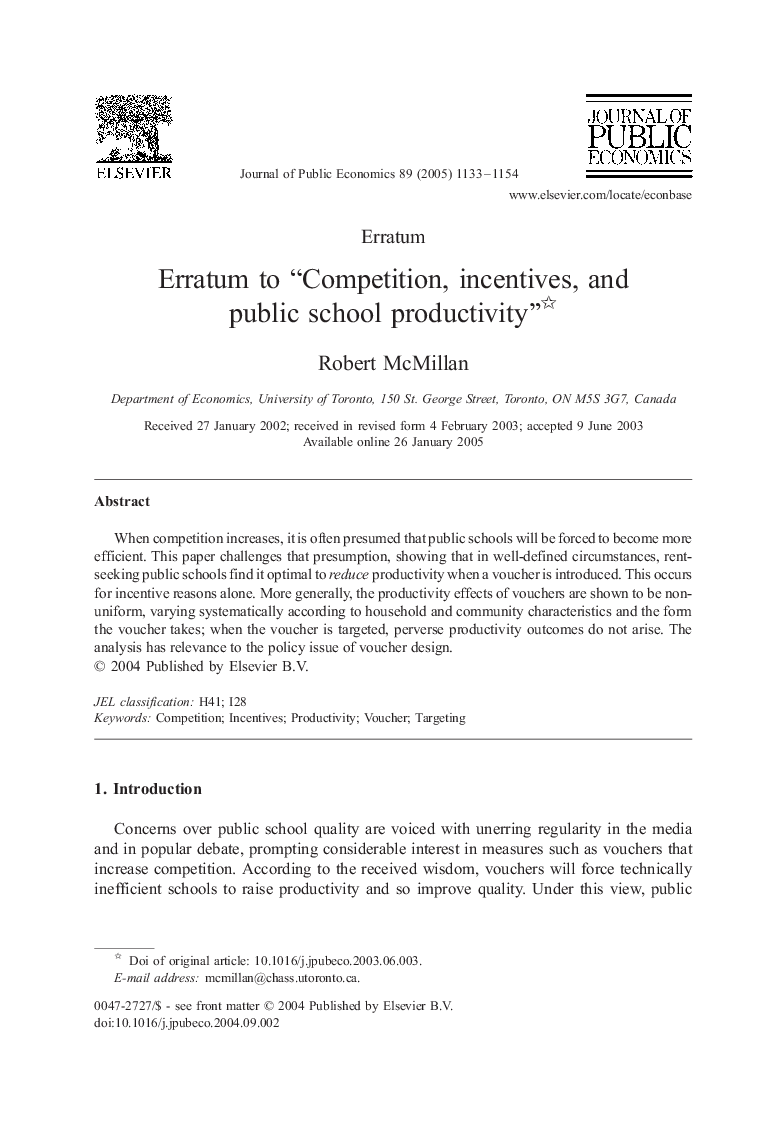| Article ID | Journal | Published Year | Pages | File Type |
|---|---|---|---|---|
| 9726868 | Journal of Public Economics | 2005 | 22 Pages |
Abstract
When competition increases, it is often presumed that public schools will be forced to become more efficient. This paper challenges that presumption, showing that in well-defined circumstances, rent-seeking public schools find it optimal to reduce productivity when a voucher is introduced. This occurs for incentive reasons alone. More generally, the productivity effects of vouchers are shown to be non-uniform, varying systematically according to household and community characteristics and the form the voucher takes; when the voucher is targeted, perverse productivity outcomes do not arise. The analysis has relevance to the policy issue of voucher design.
Related Topics
Social Sciences and Humanities
Economics, Econometrics and Finance
Economics and Econometrics
Authors
Robert McMillan,
